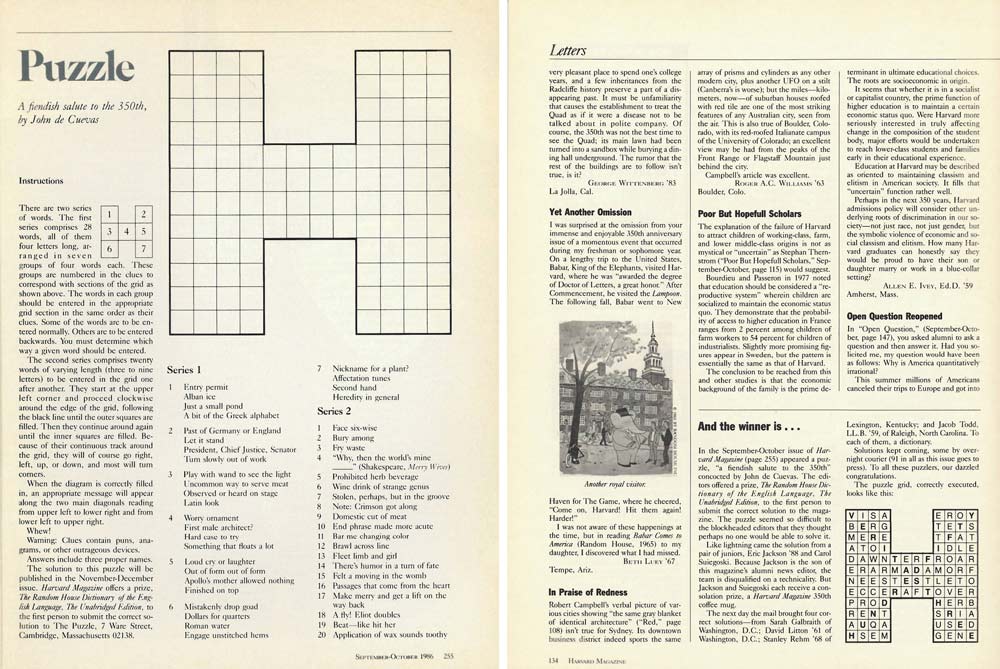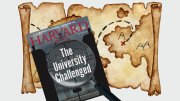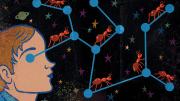John de Cuevas ’52, who has for decades contributed original crossword puzzles to Harvard Magazine’s print and online editions, has announced that he will no longer produce new puzzles for the series. In an email, he wrote:
Several readers have asked me why my puzzles no longer appear on the Harvard Magazine website. I answer, because I’m no longer up to speed. I turned 86 last October and in the last few years have experienced a slackening of mental and physical powers. I’m still putting puzzles on my website, www.puzzlecrypt.com, one every month, twelve a year, but the extra ones I was doing for Harvard are more than I can manage now. I’m sorry about that, but it’s out of my reach.
Thanks to all who asked about the puzzles and to the editors of Harvard Magazine for providing me an outlet for them these many years.
The magazine thanks de Cuevas for his many years of service and creativity. Below, find a puzzle he created for the magazine’s September-October 1986 issue, in celebration of Harvard’s 350th anniversary.










